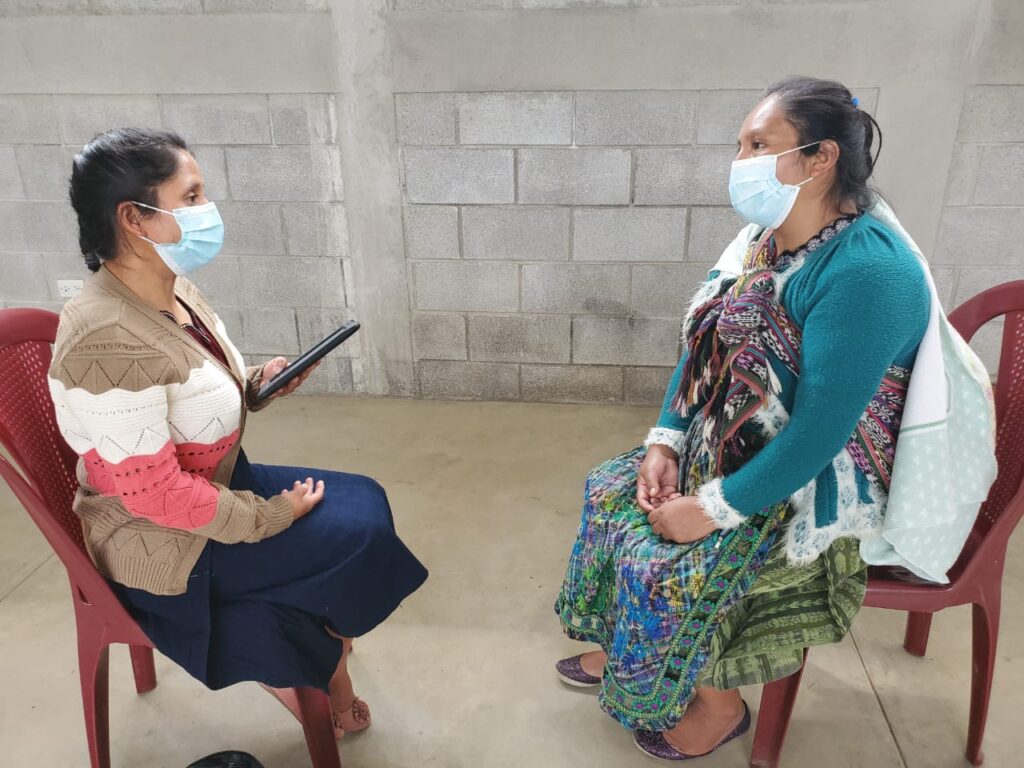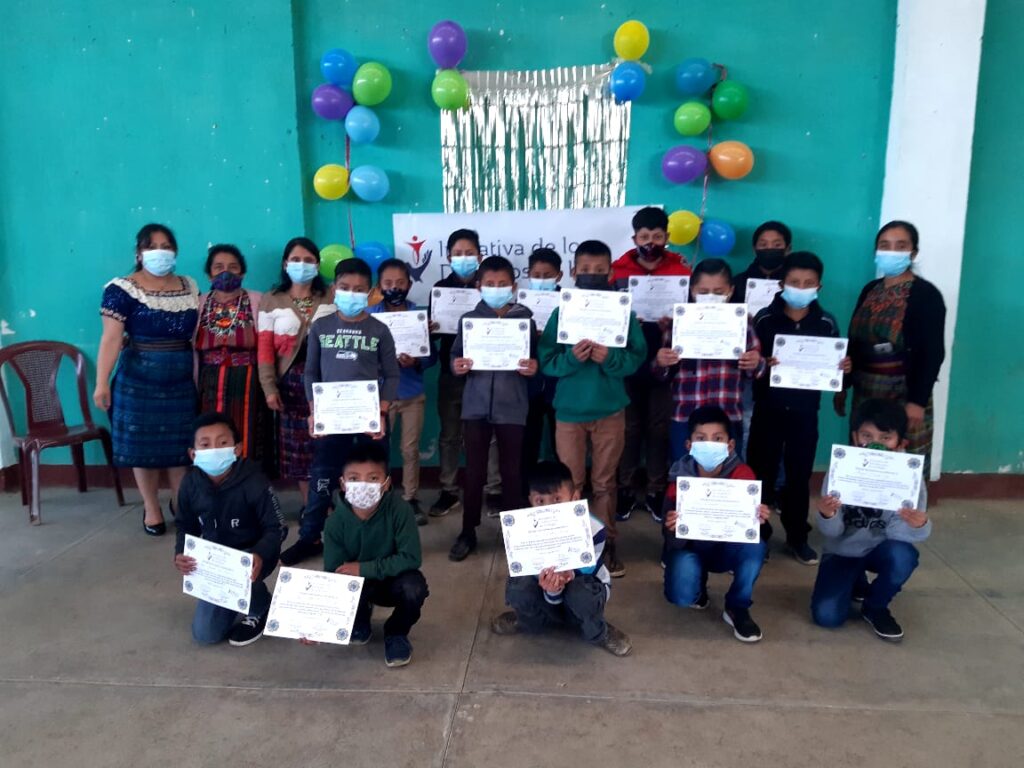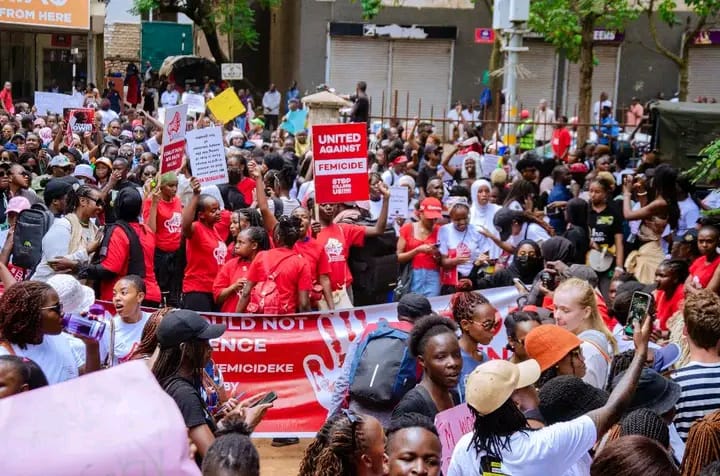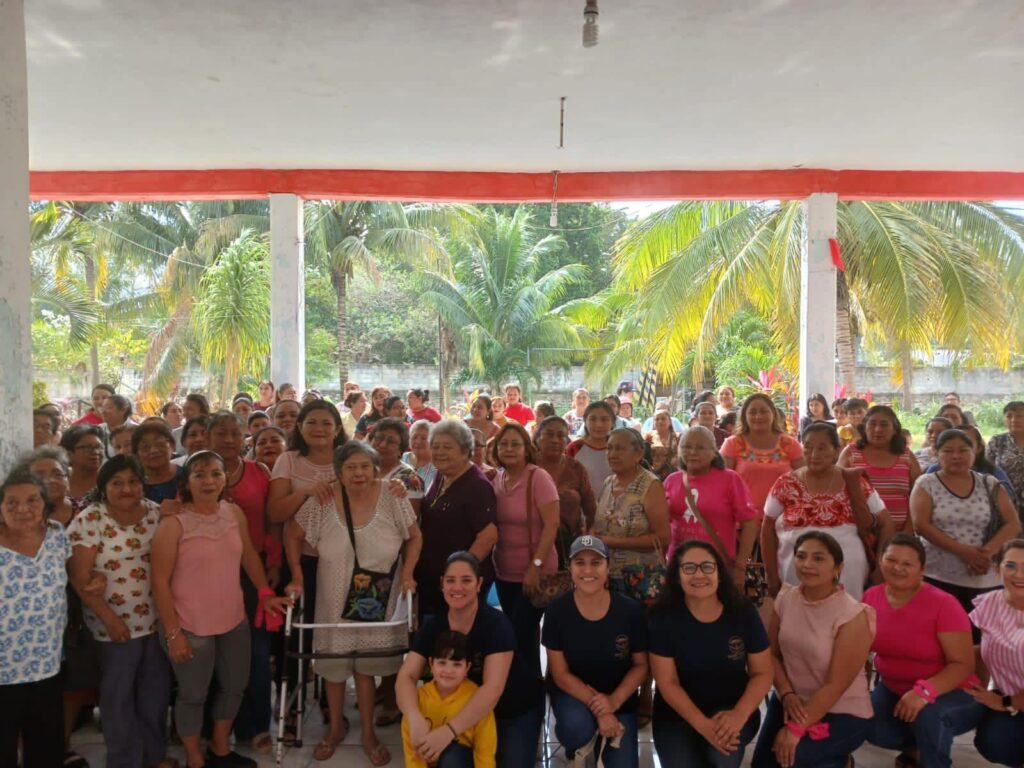Fostering Healthy Masculinity in Guatemala

The Women’s Justice Initiative enlists Maya men and boys to become partners in the urgent effort to end violence against women and girls
Machismo.
It’s a word that’s long been associated with an exaggerated version of masculinity, one that values aggressiveness, sexual bravado, and dominance.
In Guatemala, a country still recovering from a 36-year-long civil war that left over 200,000 dead, the dominance of machismo culture, a history of mass violence, and lack of enforcement of protections for women’s human rights has fueled one of the world’s highest rates of violence against women and girls.
Rural indigenous Guatemalan women are especially vulnerable to violence due to the added isolation, discrimination, and poverty they experience.
“Nearly 75 percent of women in the Western Highland communities where we work have experienced some form of gender-based violence,” says Andrea Tock, who leads monitoring and evaluation for the Guatemala-based the Women’s Justice Initiative, one of WomenStrong’s grantee partners.
“It’s viewed as both normal and acceptable,” Andrea says.
How can communities become safer for women?
According to the Women’s Justice Initiative (WJI), advancing change starts by centering the response to gender-based violence around the priorities and needs of local girls and women themselves.

Maya women, who predominantly speak the local Kaqchikel language, make up most of Women’s Justice Initiative’s staff. And the organization’s programs are designed to respond to needs identified by local community members, especially issues of violence and child marriage.
The organization’s core programs provide legal literacy and access to justice for Maya women, including survivors of violence, and support adolescent girls in finishing school and avoiding becoming pregnant or married before they are ready. The organization also runs a two-year Community Advocates Program, which trains women to become human rights educators and mentors for other women in their communities.
Even with these efforts, WJI staff realized that transforming communities couldn’t happen with women and girls alone.
“We have learned that in parallel to tackling issues that marginalize girls, we must focus on changing harmful social norms and strengthening legal protections by working directly with men and adolescent boys,” Ms. Tock says.
Today, the Women’s Justice Initiative has expanded to work with men and is testing a pilot project with boys, both to shift attitudes that reinforce unhealthy gender stereotypes and use their privileged decision-making roles to support women and girls.
Some 98 percent of Guatemala’s municipal leaders are men. Women’s Justice Initiative trains these leaders, as well as judges, police, and local health officers, on required legal protections for women and girls. Staff also educate male leaders on how issues of gender-based violence affect indigenous women and their families and encourage men to join the community referral network that responds to violence and cases of child marriage.
And now, with support from WomenStrong, Women’s Justice Initiative is piloting a new program to reach adolescent boys, as well.

The program enlists Maya boys between ages 8 and 12 in discussion groups, to talk about topics such as machismo culture, the benefits of delaying marriage and parenthood, and how to be equal partners in preventing violence against women and girls. The goal is to promote a healthier concept of masculinity, strengthen support for gender equality, and improve boys’ relationships and life skills.
“We decided to target boys, when they are young, because there’s still an opportunity to shape their understanding,” Ms. Tock says.
The boys’ program was launched in March 2020, but paused almost immediately due to the COVID pandemic, which shuttered Guatemala’s schools and made in-person gatherings unsafe. The resulting isolation put women and girls at increased risk of violence, unwanted pregnancy, and child marriage, creating an even greater need for the Women’s Justice Initiative’s legal and educational programs.
With Guatemala’s countrywide lockdowns lifted, the Women’s Justice Initiative has restarted their programs. The organization reports that families are eager to have their boys and girls back in their programs after such a long time in seclusion. There are now 75 boys enrolled in the boys’ education program.
As the Women’s Justice Initiative moves forward, it will share its lessons learned with other WomenStrong Learning Lab partners, 18 women-driven organizations that work to advance education, health, and violence prevention across Asia, Africa, and the Americas.
“We are excited to be learning from the experience and capturing results,” says Executive Director Kate Flatley. “There is growing evidence of the importance of education in empowering boys to challenge harmful gender norms.
“The Learning Lab itself has been really helpful to think about how we set ourselves up to learn in implementing the boys’ program, what are the questions to be asking, what have other programs done,” Ms. Flatley says.
One important question? How to ensure that a focus on boys doesn’t have unintended consequences on girls, by elevating and reinforcing men’s traditional authority over women’s lives. Examining potential impacts – both positive and negative – is an important part of the Women’s Justice Initiative’s evaluation and something that many programs that engage men and boys confront.
At the end of the day, the Women’s Justice Initiative hopes that their work will cause both men and boys to shift their thinking, and most importantly their behavior, to make machismo a thing of the past.
It’s one important step forward, in the WJI’s mission to end inequality in Guatemala and to ensure that every Maya girl can grow up in a world without violence.




